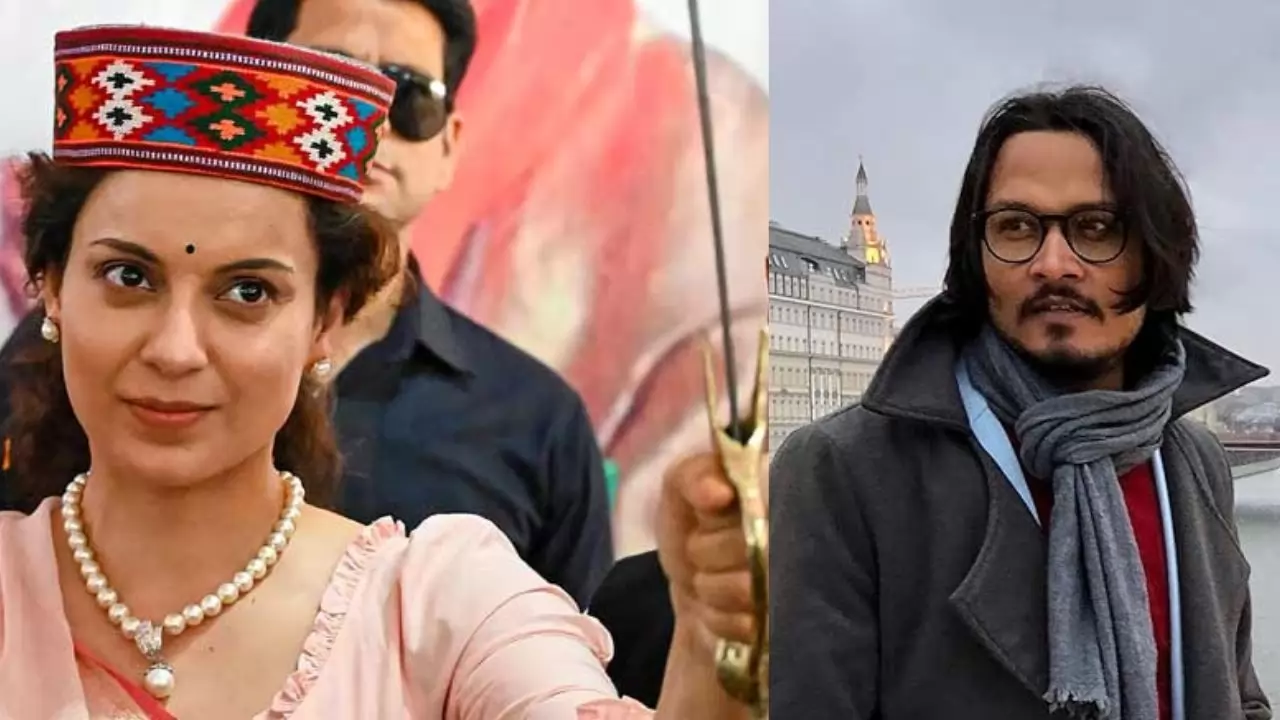
X
In a recent turn of events, Bollywood actress Kangana Ranaut has come out in support of YouTuber Ajeet Bharti, who is facing legal trouble for allegedly spreading false news about Congress leader Rahul Gandhi. The controversy has sparked significant public interest, with many weighing in on the implications of the FIR filed against Bharti.
Ajeet Bharti, a popular YouTuber known for his satirical content, found himself in hot water after an FIR was registered against him for disseminating fake news regarding Rahul Gandhi. The video in question allegedly misleadingly portrayed Gandhi, prompting legal action. The charges have raised questions about the boundaries of free speech and the responsibilities of social media influencers.
Kangana Ranaut, an outspoken actress with a history of making bold political statements, took to social media to defend Bharti. Comparing him to Hollywood star Johnny Depp, Ranaut suggested that Bharti is being targeted unfairly. She highlighted the importance of supporting voices that challenge the status quo and questioned the motives behind the FIR.
In her post, Ranaut called Bharti the "Desi Johnny Depp," implying that he is a misunderstood figure facing undue scrutiny. Her defense has added fuel to the ongoing debate about the role of social media and the legal system in regulating content and maintaining accountability.
Aap desi Johnny Depp ho aapko kuch nahi hone denge …
— Kangana Ranaut (@KanganaTeam) June 16, 2024
बहुत-बहुत आभार 🙏 @KanganaTeam! जॉनी डेप का तो पता नहीं, परंतु आप सब का समर्थन पा कर अभिभूत हूँ।
— Ajeet Bharti (@ajeetbharti) June 16, 2024
The incident has once again brought to light the significant influence of social media platforms in shaping public opinion. YouTubers and influencers like Ajeet Bharti command large followings, and their content can have far-reaching impacts. This raises critical questions about the ethical responsibilities of content creators and the extent to which they should be held accountable for the information they disseminate.
The FIR against Bharti underscores the ongoing struggle to balance freedom of expression with the need to prevent the spread of misinformation. While social media offers a platform for diverse voices, it also poses challenges in regulating content and ensuring that it does not harm public discourse. The legal action against Bharti may set a precedent for how such cases are handled in the future, potentially impacting other content creators.
The public response to the FIR and Ranaut's defense of Bharti has been mixed. While some support Ranaut's stance on free speech, others argue that spreading false information should have consequences. The debate reflects broader societal tensions around media freedom, misinformation, and the accountability of public figures.
The case of Ajeet Bharti and the FIR filed against him for allegedly spreading fake news about Rahul Gandhi highlights the complex interplay between social media, law, and public opinion. Kangana Ranaut's vocal support for Bharti adds another layer to the discussion, emphasizing the ongoing debate about the limits of free speech and the responsibilities of content creators. As this situation unfolds, it will be crucial to watch how it influences future legal and social media landscapes.





Copyright © 2026 Top Indian News
